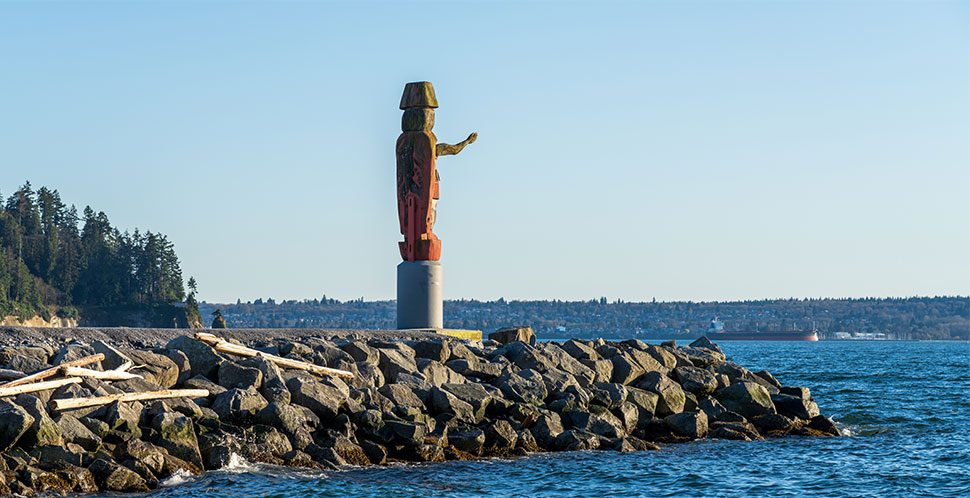First, let’s define reconciliation.
“Reconciliation” refers to the process of nurturing a sustained relationship of mutual respect and understanding with local First Nations and Urban Indigenous communities.
As such, reconciliation in action includes acknowledging the enduring harm caused by Canada’s colonial history, and taking the steps needed to redress its legacy – including that of residential schools and harmful policies enacted by financial, legal and political systems.
Since adopting its City of Reconciliation Framework in 2014 – the first government in Canada to do so – the City of Vancouver, experts and community leaders have worked in tandem towards understanding and implementing economic reconciliation as a form of reconciliation and redress in action.
“Economic Reconciliation” refers to the economic redress of historical injustices to Indigenous Peoples. These groups include host First Nations and other Indigenous Nations and groups, such as the Metis, Inuit and off-reserve or non-status Urban Indigenous populations. In Vancouver, the term “economic decolonization” has also been used to reference returning land to First Nations as a means of economic redress.
Economic reconciliation strives to achieve economic balance and equality for Indigenous Peoples to redress the fundamental social, political, and financial harm enacted through systematic disempowerment. It is a key component of reconciliation in action because it addresses the gap between the lived reality of Indigenous Peoples and the significance of the Indigenous relationship to all communities living on the land and to the land itself.
From Reconciliation Canada:
“Economic reconciliation aims to create meaningful partnerships and mutually beneficial opportunities based on a holistic, values-driven approach to attaining community economic prosperity.”
Equal economic participation of Indigenous and non-Indigenous people is mandated in the United Nations Declaration on the Rights of Indigenous Peoples (UNDRIP, 2007), which is ratified in both Canada (CANDRIP, 2021) and British Columbia (BCDRIP, 2019).
Here in Vancouver…
The city we call Vancouver is built on the unceded and traditional territories of the Musqueam, Squamish and Tsleil-Waututh Nations. Vancouver economic developers, including the Vancouver Economic Commission, are increasingly taking their cues from traditional Indigenous values.
As of 2020, the Vancouver Economic Commission adopted economic reconciliation as one of the four corporate pledges that form the bedrock of its approach to economic development.
Pre-settler Indigenous economies valued shared prosperity, multigenerational wealth and social wellbeing while thriving in balance with the planet – as the Musqueam, Squamish and Tsleil-Waututh peoples have done in the surrounding waters, forests, and lands since time beyond memory.
Further reading from VEC
- What is economic development (and how are economic developers taking their cue from traditional Indigenous values?)
- 22 knowledge-Keepers and Trailblazers to Watch
- 10 organizations committed to regenerating Indigenous prosperity through investment, education, and relationship building
- [New] What is Indigenous Economic Prosperity? An Interview with Nathan Grandjambe
“From the Indigenomics perspective, economic reconciliation is defined as the space between the lived realities of Indigenous Peoples, the need to build understanding of the importance of the Indigenous relationship, and the requirement for progressive actions for economic inclusion. It is through economic reconciliation that Indigenous Peoples are creating a seat at the modern economic table.”
Carol Anne Hilton, MBA,
CEO, Indigenomics Institute
Suggested Resources on Economic Reconciliation
Study
Centering First Nations Concepts of Wellbeing: Toward a GDP-Alternative Index in BC
By Mark Podlasly, for the BC Assembly of First Nations
Website
Step into the River: A Framework for Economic Reconciliation
Sxwpilemaát Siyám (Chief Leanne Joe, Squamish Nation) and Lily Raphael
